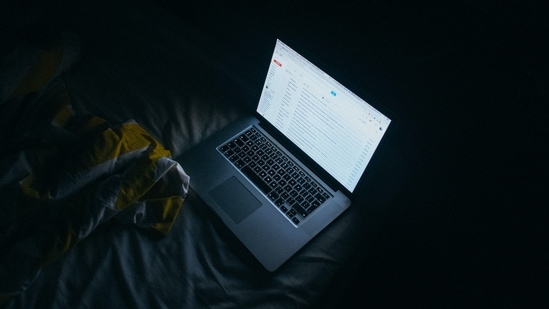Limited screen time before sleep may not harm quality of sleep, claims research
This is contrary to what is typically reasoned to cut off the screen time, it is usually believed the blue light makes bodily systems block the hormone melatonin which makes us feel sleepy.
It is often advised to put off digital devices at least an hour before going to sleep, considering the ill effect of blue light coming from the screen on our metabolic and sleep cycle. However, a recently published study points otherwise, the finding shows that some amount of screen time may not actually be harmful for our body or neither does it severely affect the quality of sleep.

The research published in Oxford academic on behalf of Sleep Research Society, examined if the blue light that influences only naturally photosensitive retinal ganglion cells (ipRGCs) in the eyes would have any effect on sleep quality. The study establishes that suppression of melatonin by light targeting the melanopic system does not automatically spell out sleepiness or sleep quality. This is contrary to what is typically reasoned to cut off the screen time, it is usually believed the blue light makes body systems block the hormone melatonin which makes us feel sleepy.
How was the research done?
The research was done on 29 individuals, aged 18-30 years including 15 women, in a sleep lab with exposure to two types of light, although the difference would not have been perceived by the participants, as both lights seemed identical.
The participants under testing were healthy young adults. They were exposed to one kind of light coming from a screen for 1 hour ending 50 minutes prior to habitual bedtime for a week. Then, after a week they were tested under another kind of light.
Initially, the under trial participants were exposed to a high percentage of blue light that would be caught up by the specialised retinal ganglion cells. Afterwards, they were exposed to a lower fraction of blue light that would not be sensed by these cells.
An electroencephalogram (EEG) machine - measures electrical activity in the brain was used to monitor the brain activity while the participants slept.
What are the research findings?
The level of the hormone was reduced by 14%, but no particular effect was found on sleep quality. Christine Blume, one of the researchers, explained to the New Scientist magazine that melatonin and sleep may not be as closely linked as people think. She adds that the need to sleep at a certain time is largely based on the pressure to go to sleep and the circadian clock - the body’s internal clock.
However, other experts say that this research does not conclusively prove that blue light exposure before bed has no effect on our sleep quality. They say it is just that the type of light at the particular intensity exposed in this experiment is not harmful, but the screen also emits various other types of light. Nevertheless, this study shows the need to have deeper research to study the complex phenomenon governing our sleep cycle.






